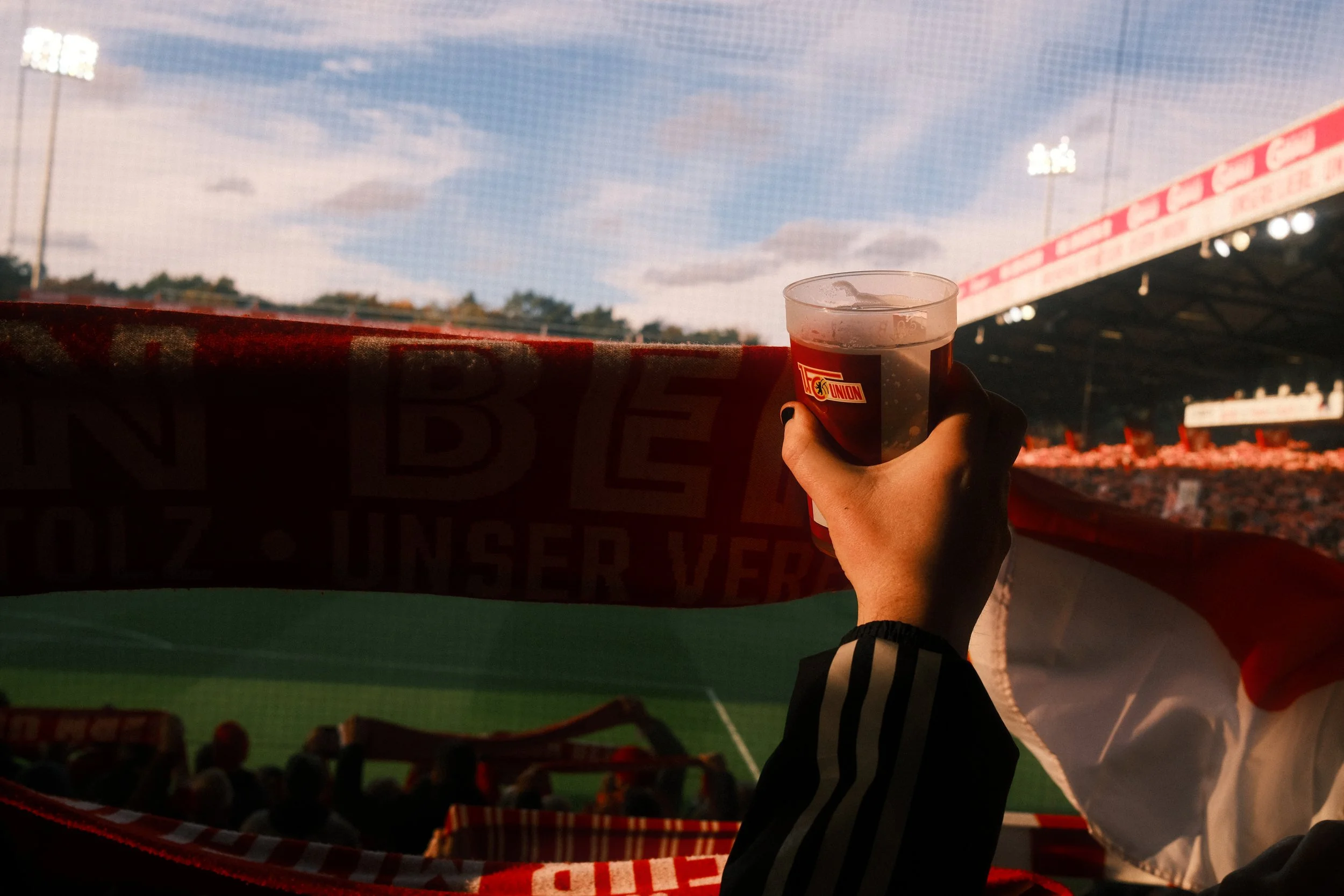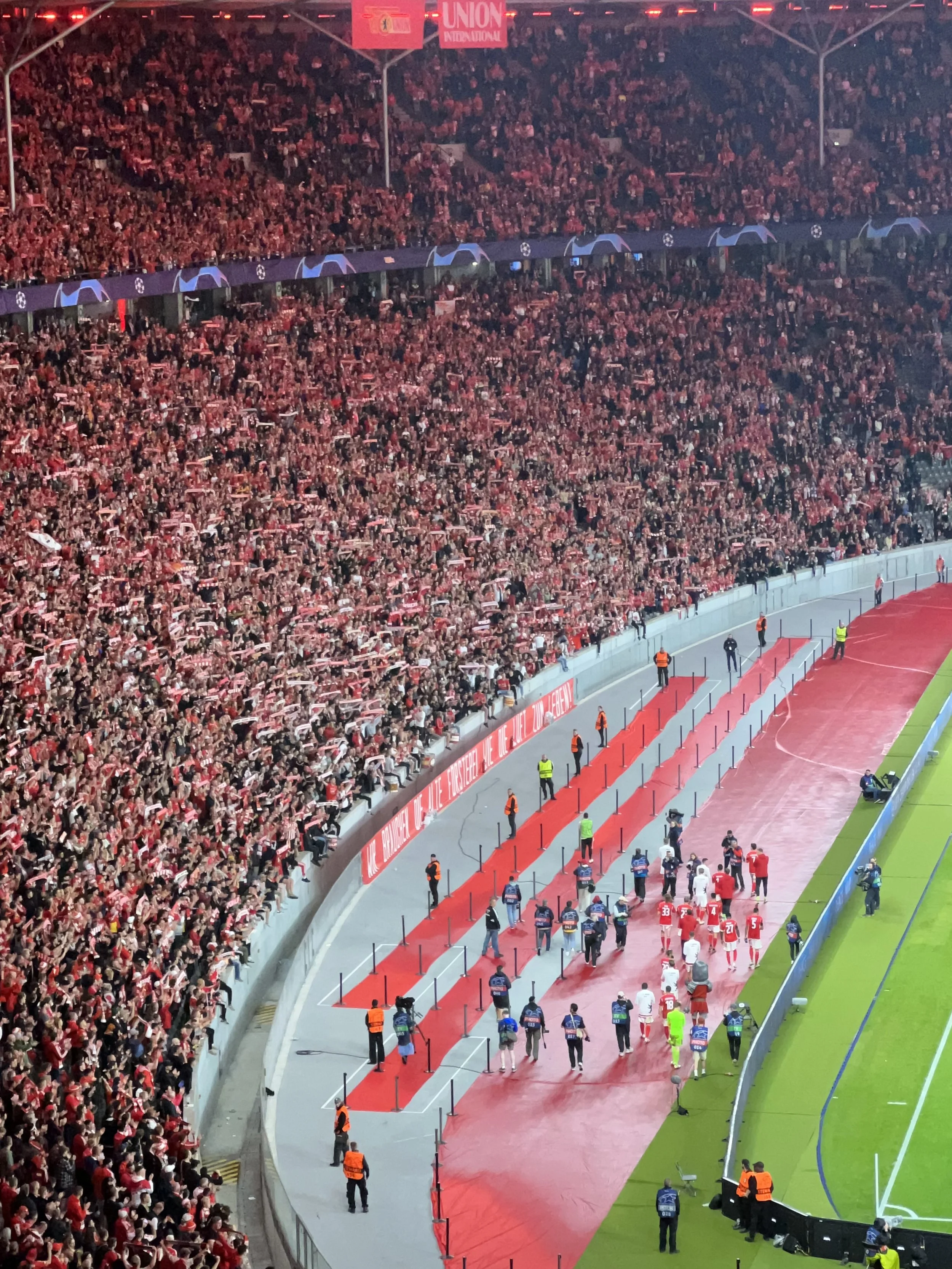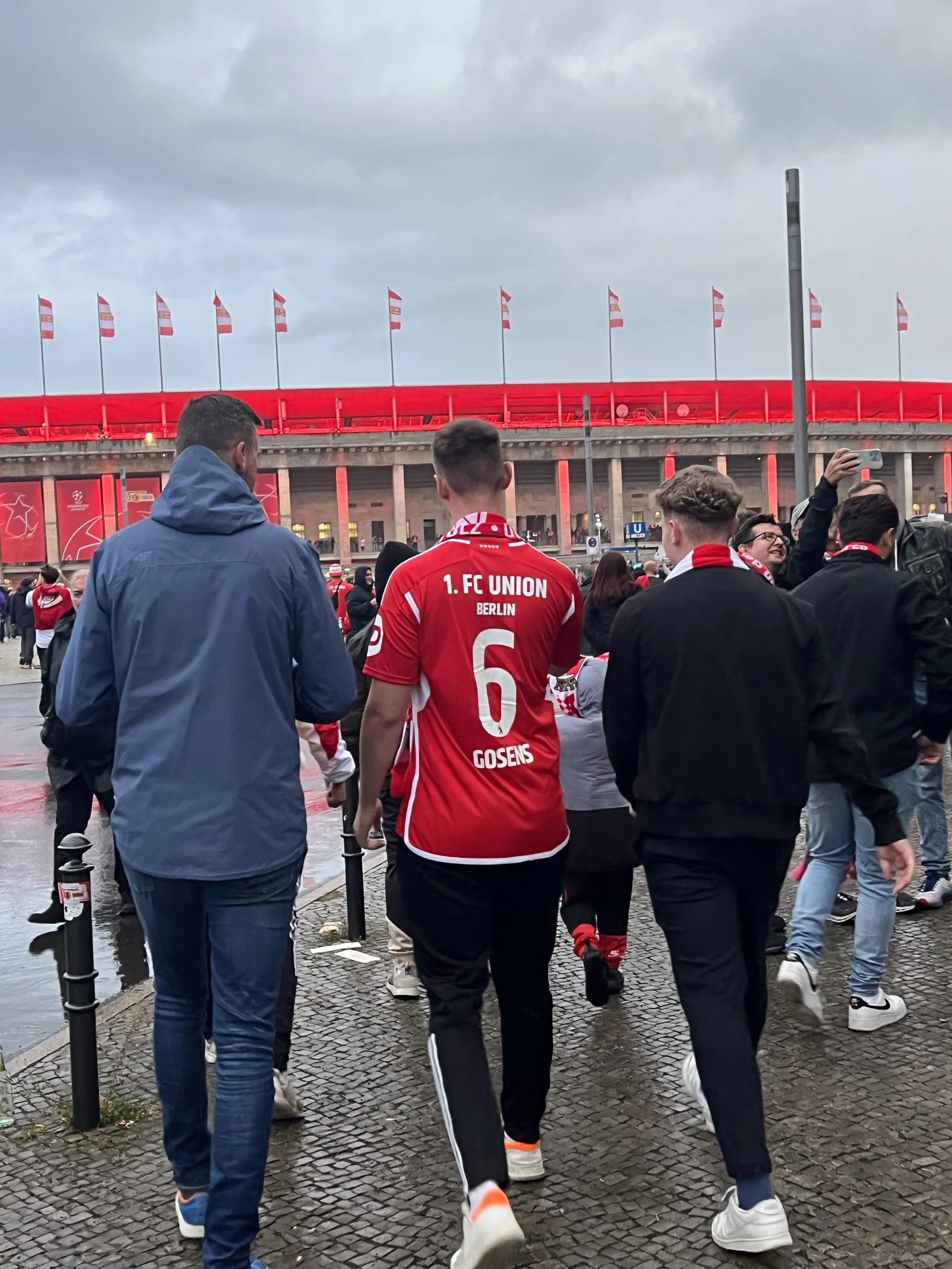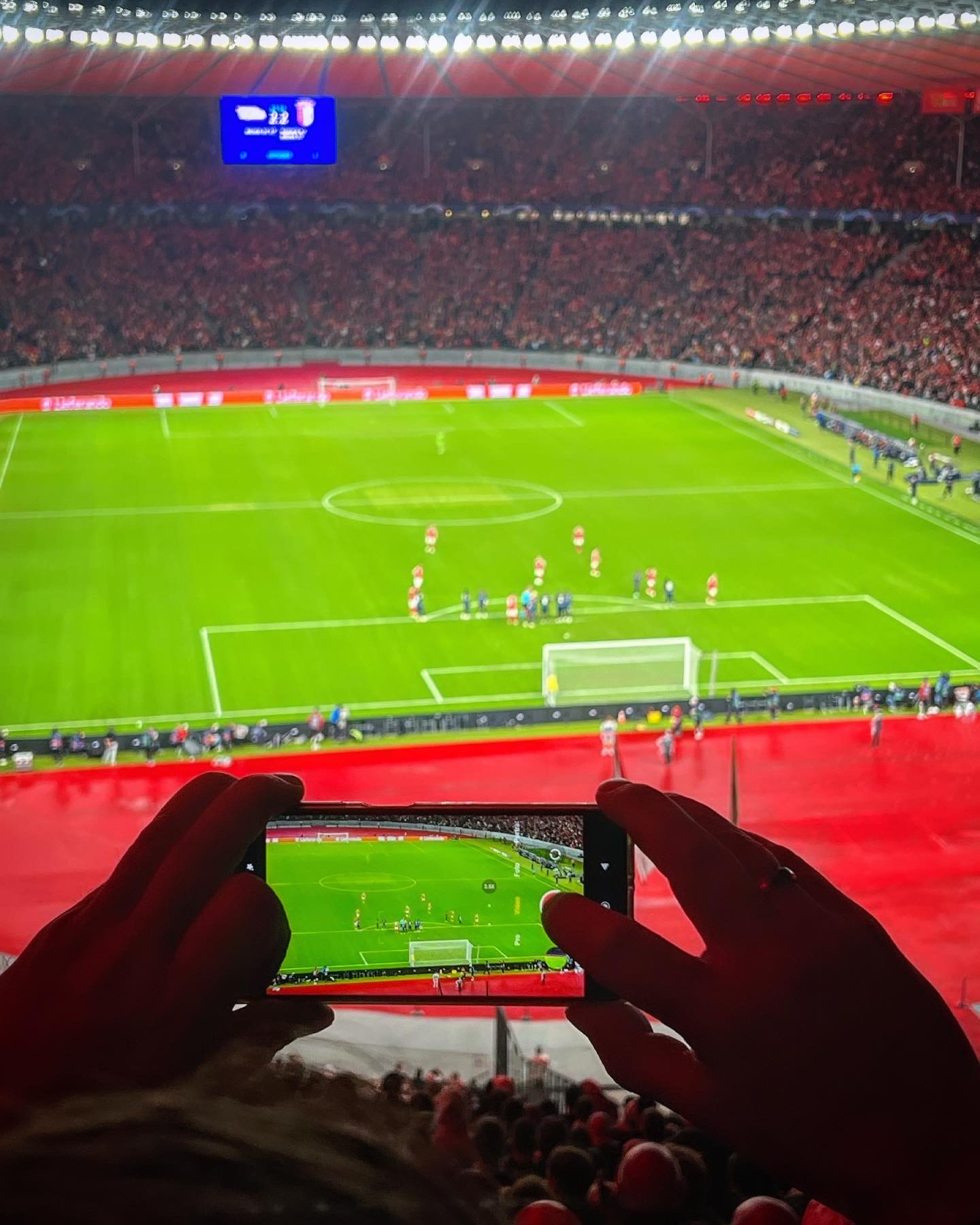Condemned to become, never to be: Union in Europe
Home is where the heart is right? Well, in Berlin, it’s not that simple.
On Berlin, one of Germany’s most famous writers, Karl Scheffler, mused in the early 1920s that the city is “condemned forever to become and never to be”. It was a reference to the city’s untapped potential, along with the barriers preventing it from becoming a 20th-century metropolis, like its European neighbours London and Paris.
In a way, Scheffler’s words still ring true today. Of course, Berlin has ‘become’, with the German capital a beating heart of music, culture and society. But the past can often be an unwanted presence in Berlin, with decades of war, division and outright misery leaving a scar that runs deep throughout the city.
To ‘belong’ in Berlin throws up a confusing paradox. The city which for so long had two very distinct identities, has since ditched the concept altogether. Berlin’s identity is whatever you want it to be. And that’s the beauty of Berlin, it has become a wonderful sanctuary of misfits – something represented by its many football teams.
The fact Berlin doesn’t have a football superpower says plenty about the city itself. Clubs are found in every neighbourhood, each representing a different sub-section of the city’s many different societies – one of the more recognisable being Union Berlin.
East Germany’s unlikely club, whose rise through the divisions – and into European competition – was as much an accident as it was unlikely. A well-told story by now, but Union were on the brink of extinction at the turn of the millennium, only for supporters of the club to donate their blood in exchange for cash. Union, as a club, lived to tell the tale.
That rise from the depths of footballing despair culminated in qualification to the Champions League for the 2023/24 campaign. Sneaking into the Bundesliga’s final qualification position, Union’s improbable story continued to write its own chapters. By the time Matchday One of the Champions League rolled around (a fairytale trip to the Spanish capital to face Real Madrid at the Santiago Bernabeu) Union had, somewhat remarkably, already experienced European football.
Back in 2001, die Eisernen qualified for the UEFA Cup preliminary rounds, having finished as DFB Pokal runners-up to Schalke 04. Their maiden continental campaign was predictably short, with Union knocked out in the second round of qualifying by Bulgarian side Litex Lovech.
But even still, in more recent times, a couple of Europa campaigns had prepped Union - at least they thought - for what might be to come in the Champions League. The most memorable moment being Union’s February 2023 victory over Ajax in the Europa League last-32.
In some ways, Union’s performance was offensive, an affront to the establishment. Having survived a trip to the Johan Cruyff Arena unscathed, the Berlin-based outfit dismantled Ajax in the second leg, winning the tie 3-1 on aggregate. Four-time European champions Ajax humbled by plucky Union.
Above everything else though, the most memorable part of that fixture was the venue it was played in. Unlike the previous season’s Europa Conference League campaign, Union had been playing matches at their historic stadium, Stadion An der Alten Försterei. It was a watershed moment for Union. They’d won a knockout fixture at the Försterei in Europe for the first time in their history. It was where their home was, it was where their heart was.
Fast forward a few months, with Union having booked their spot in the Champions League group stage, things had changed. For one inexplicable reason after another, Union would instead - like they had done for the Europa Conference League two seasons prior - be playing at the Olympiastadion instead. Condemned to become, never to be…
* * *
FC Union Berlin vs S.C. Braga
UEFA Champions League - 03.10.2023
Berlin was, well, Berlin-ish on the day of the match. The late autumn sun poked through the city’s streets and activity around Alexanderplatz was beginning to increase, but not necessarily because of the football.
That’s kind of the mystique about football in Berlin. You know it exists, you see shirts, flags, scarves and stickers everywhere you go, but unlike other places in Germany and Europe, it isn’t somewhere defined by its passion for the sport. It’s stuff like that which adds to the charm of a football city like Berlin. There’s no flamboyance, instead, just a feeling of authenticity.
On the day of Union Berlin’s first-ever ‘home’ game in the Champions League, you’d have been forgiven for not even knowing there was a football match being played at all. But, as the hours ticked by and kick-off approached, the city did start to resemble something close to what might be typically expected on the day of a big European fixture.
A smattering of red and white scarves began popping up. The background hum of conversation from would-be-match-goers got louder. And, perhaps the biggest indication a football match was pending, there was a noticeable increase in the amount of people wandering around with a beer in their hands. Yet, it wasn’t until setting off for the Olympiastadion things really began to step up.
The journey to the Olympiastadion is a fairly lengthy, but simple one. Serviced by both the U-Bahn (underground) and S-Bahn (overground), the ease of travelling via public transport in Germany’s capital pretty much eliminates the need for cars. The only matchday traffic to contend with is jostling for a spot on the train, but even if you miss out on a seat, it’s nothing a couple of cans of Berliner won’t fix.
However, when the (S-Bahn) train docked at the south-side Olympiastadion station, unlike other experiences of arriving at a stadium, this one felt a little different. That’s because, for most Unioners, it was a matchday detached from their typical experience - the Olympiastadion isn’t their home.
Not that it took anything away from the mystique of the Olympiastadion itself though - the 74,000 capacity stadium which is currently the residence of Union’s city rivals Hertha Berlin. For the first time since the almost 100-year-old stadium hosted the final in 2015, the Champions League banners were once again draped around the Olympiastadion’s iconic colosseum-like facade. The entire occasion felt like one of grand importance and in a way that was to Union’s detriment, both on and off the pitch.
There was certainly an unfamiliar element to what was, at least on paper, a Union home match. Something the ultras section in the Gegentribüne made clear as the Champions League anthem echoed around the Olympiastadion.
‘UEFA stadium infrastructure regulations: You don’t care about the sport, all you care about is money’ read an unfurled banner. A powerful statement and a jibe at the continent’s governing body, but the decision to play at the Olympiastadion was one signed off by the club’s hierarchy themselves. The official line: it would give over 50,000 more fans a chance to attend matches. For the regulars, it made the experience markedly different.
Ironically though, on the pitch Union looked right at home. Two goals from Sheraldo Becker saw the Bundesliga side race to an early advantage. Things were going deceivingly well. Just a shame it didn’t last. In fitting with the weather that night in Berlin, Braga were intent on raining on Union’s parade. Goals just before and immediately after the restart levelled the tie for the Portuguese outfit before a cruel 94th-minute winner denied Union their first-ever Champions League group-stage point.
It didn’t stop the noise from Union fans though, both metaphorically and literally. Unusual surroundings perhaps, but the Eisernen supporters were loud. Very loud. And if anything, after conceding the heartbreaking last-minute goal, the Olympiastadion got louder.
It’s a common misconception that German football fans don’t care about the result. Of course they do. But there was a different aspect at play here. Instead of the end goal, playing in the Champions League was a welcome mishap for Union. The pot of gold at the end of the rainbow. Hence why, in the pouring Berlin rain, having suffered the worst possible feeling as a football supporter, the Union drum beat got louder.
For those Union supporters flooding the Olympiastadion terraces, this time, it wasn’t about the result, the competition, or even where they were playing it. Because for fans of the club who have in the past teetered on the brink of extinction, both home and heart will be found wherever Union are.





